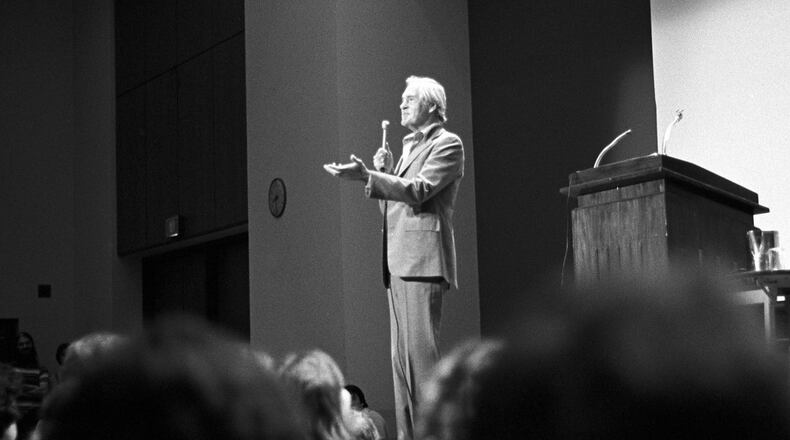Timothy Leary, dubbed “the most dangerous man in America” by President Richard Nixon, passed away 25 years ago on May 31.
Leary became a national figure during the 1960s for his advocacy of mind-altering drugs and defiance of the status quo. His mantra, “Turn on, tune in, drop out,” struck a responsive chord in the young counterculture generation, and many did just that, turning their backs on traditional values of white picket fences and social norms.
Trained as a psychologist, Leary was 40 years old and a professor at Harvard when he took a trip to Mexico in 1960 and tried psychedelic mushrooms for the first time.
When Leary returned from Mexico, he decided to place an order with Sandoz, which then manufactured LSD and psilocybin (the synthetic version of the chemical in the mushrooms), and begin the Harvard Psilocybin Project with colleague Richard Alpert, who later became known as Ram Dass. They were fired from Harvard University in 1963.
"You have to go out of your mind to use your head."
As word spread about his work, Leary was sought out by many infamous bohemian leaders including Aldous Huxley, Allen Ginsberg, Jack Kerouac and Neal Cassady.
Leary’s friend John Perry Barlow, a writer and activist on internet issues, told the Los Angeles Times, “He was some kind of Zelig among the Zeitgeist. Whatever was going on in the culture, it was something he could not help to emulate.”
“In the ’40s he was a cadet at West Point, in the ’50s he was a tweedy college professor, in the ’60s he was Timothy Leary, which was exactly right for that time,” Barlow said. “In the ’70s he was a political prisoner and in the ’80s he lived in Beverly Hills and hung out at Spago. He found a place in whatever was going on around him.”
In January 1995, Leary was diagnosed with inoperable prostate cancer.
He passed away in his Beverly Hills home at 75 on May 31, 1996.
According to his son Zachary, his final words were “Why?” and then “Why not?”
About the Author
Keep Reading
The Latest
Featured

